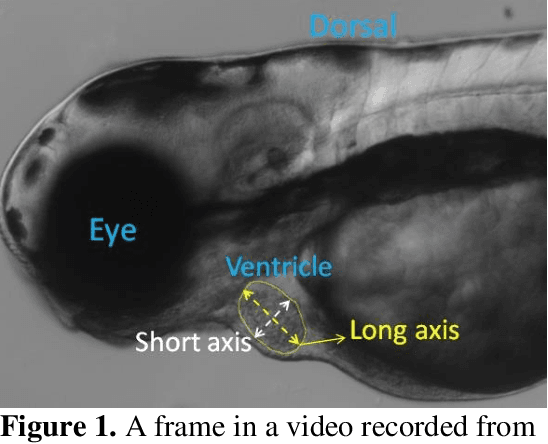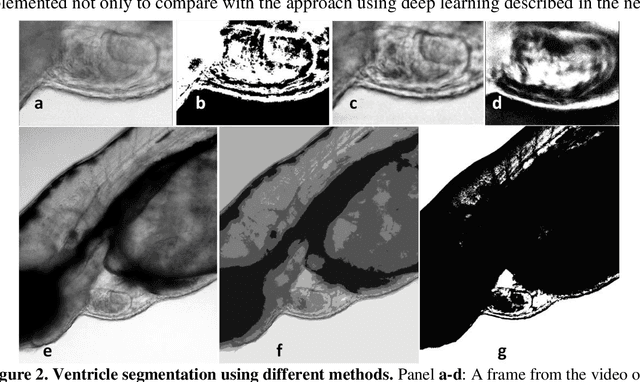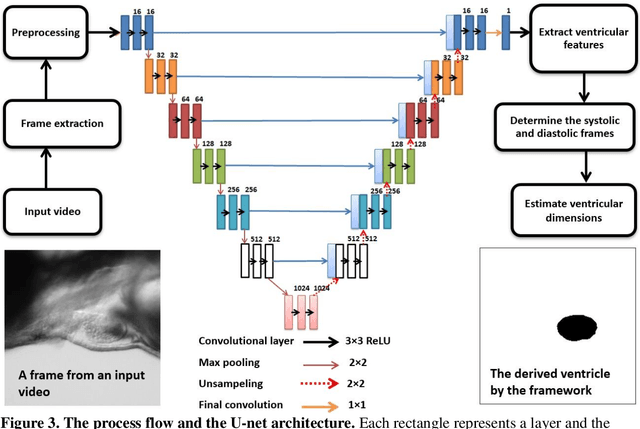Deep learning-based framework for cardiac function assessment in embryonic zebrafish from heart beating videos
Paper and Code
Feb 24, 2021



Zebrafish is a powerful and widely-used model system for a host of biological investigations including cardiovascular studies and genetic screening. Zebrafish are readily assessable during developmental stages; however, the current methods for quantification and monitoring of cardiac functions mostly involve tedious manual work and inconsistent estimations. In this paper, we developed and validated a Zebrafish Automatic Cardiovascular Assessment Framework (ZACAF) based on a U-net deep learning model for automated assessment of cardiovascular indices, such as ejection fraction (EF) and fractional shortening (FS) from microscopic videos of wildtype and cardiomyopathy mutant zebrafish embryos. Our approach yielded favorable performance with accuracy above 90% compared with manual processing. We used only black and white regular microscopic recordings with frame rates of 5-20 frames per second (fps); thus, the framework could be widely applicable with any laboratory resources and infrastructure. Most importantly, the automatic feature holds promise to enable efficient, consistent and reliable processing and analysis capacity for large amounts of videos, which can be generated by diverse collaborating teams.
 Add to Chrome
Add to Chrome Add to Firefox
Add to Firefox Add to Edge
Add to Edge